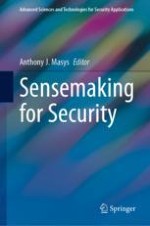OECD (A systemic resilience approach to dealing with Covid-19 and future shocks, p. 14, 2020 [
1]) argues that ‘The excuse that dangers are clear only in hindsight does not stand up to objective scrutiny. Major simulation exercises in OECD countries predicted accurately how a crisis like Covid-19 could unfold, but they were not acted on, or not sufficiently, judging by what has happened’. Heyman et al. (Lancet 385:1884–1901, 2015 [
2]) argue that, “the world is ill-prepared” to handle any “sustained and threatening public-health emergency”. The complex threat and risk landscape that shapes our security and safety experience is characterized by Volatility, Uncertainty, Complexity and Ambiguity (VUCA) conditions. For example the recent COVID 19 pandemic reflects how
unexpected events often audit our resilience (Weick and Sutcliffe in Managing the unexpected: resilient performance in an age of uncertainty. Wiley, San Francisco, 2007 [
3]). Such
surprising events often reflect an organization’s inability to recognize evidence of new vulnerabilities, sense weak signals or the existence of ineffective countermeasures (Woods in Resilience engineering. Ashgate Publishing, Aldershot, 2006 [
4]). Public health emergencies stemming from infectious disease outbreaks are creating a serious threat to global health security and have significant National Security implications. Viewed as a black swan or an elephant in the room, this pandemic point to the requirement to be sensitive to the extremes: to those events that lie outside of what we consider predictable (Masys in Homeland security cultures: enhancing values while fostering resilience. Rowman & Littlefield International, London/Lanham, 2018 [
5]; Masys in Disaster forensics: understanding root cause and complex causality. Springer Publishing, 2016 [
6]; Taleb in The black swan: the impact of the highly improbable. Penguin Books Ltd., London, 2007 [
7]). Weick [
8] refers to sensemaking in terms of ‘… how we structure the unknown so as to be able to act in it. Sensemaking involves coming up with a plausible understanding—a map—of a shifting world; testing this map with others through data collection, action, and conversation; and then refining, or abandoning, the map depending on how credible it is’ (Ancona in Handbook of teaching leadership. Sage, Thousand Oaks, pp. 3–20, 2011 [
9]). Using the COVID-19 pandemic as a backdrop and context for this chapter, sensemaking thought leadership will be explored leveraging the seminal work of Weick [
8].
